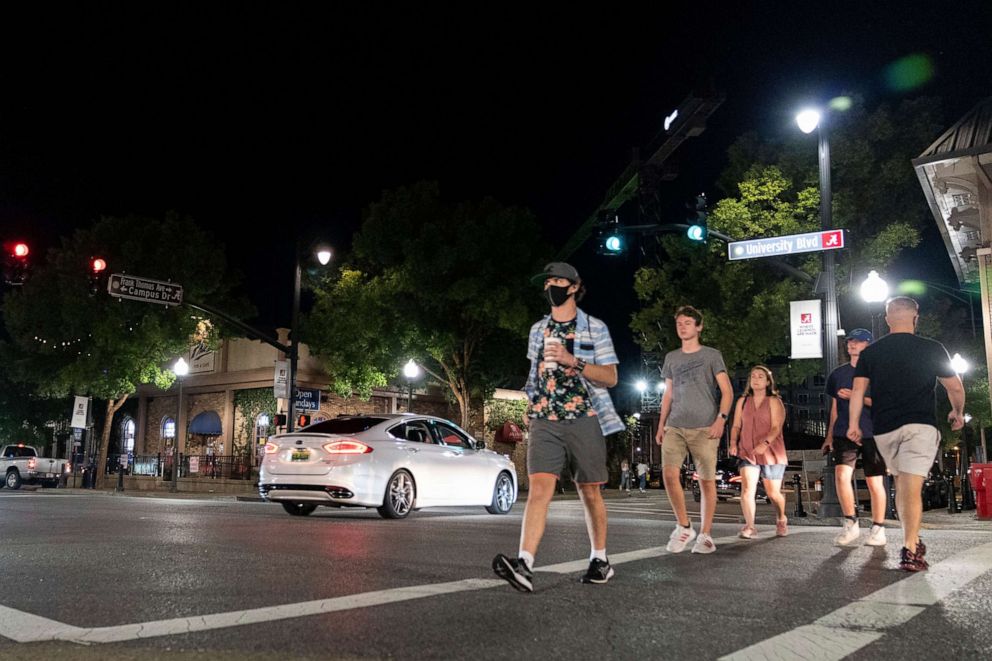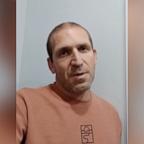Tuscaloosa closes bars until September after cases rise at University of Alabama
The city of Tuscaloosa, Alabama, will close its bars starting at 6 p.m. on Monday after the University of Alabama reported a rise in COVID-19 cases.
Mayor Walter Maddox signed an executive order restricting all bars from serving alcohol until Sept. 8 -- anyone who violates the order could be fined or sentenced to a maximum of 180 days in the municipal jail.
In a letter to students on Sunday, university President Stuart Bell called the rise in cases on campus to be "unacceptable" and said this is a "critical moment" for the school.

"Make no mistake, this trend is a real threat to our ability to complete the semester on campus," Bell said, adding that "violations to our health and safety protocols" are "subject to harsh disciplinary action, up to and including suspension" from the university.
University police and the Tuscaloosa Police Department will monitor bars, restaurants and off-campus residences where guidelines are not being followed.
ABC News' Janice McDonald contributed to this report.





